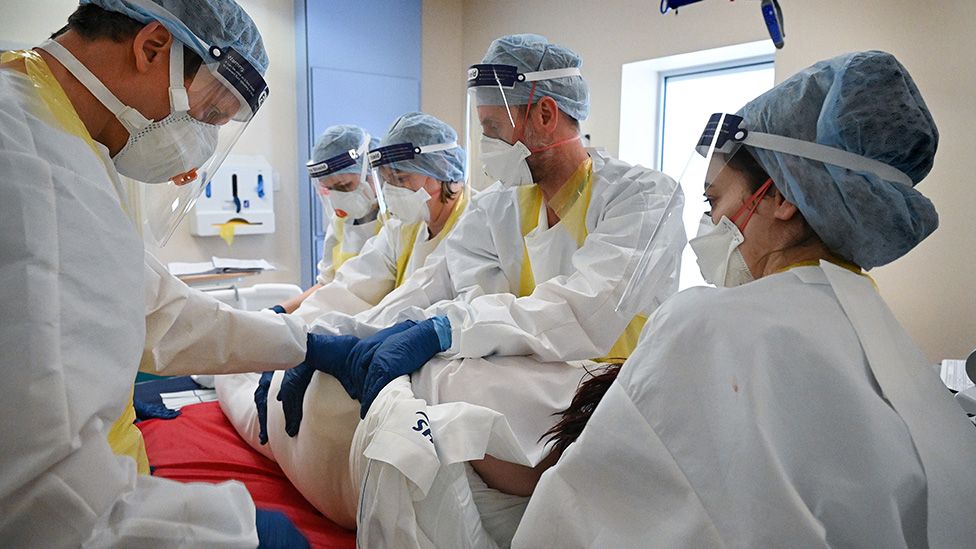Covid in Scotland: Senior doctor 'shortage' could hit NHS recovery
- Published

It will be "impossible" for NHS Scotland to recover from the pandemic if senior staff cannot be retained, a medical body has warned.
The British Medical Association (BMA) Scotland said vacancies for consultants may now be higher than 15%.
Doctors were also reporting "widespread burnout" even before the Covid crisis hit, according to the association.
The Scottish government said the number of consultants had increased by more than 56% since 2006.
A spokesperson added that there was a "record high" of 5,702 whole time equivalent consultants currently employed by NHS Scotland.
BMA Scotland is calling for urgent action from the Scottish government to stop what it called a "deeply worrying drain of senior doctors out of the workforce".
A report published by the trade union found one in five consultants who were aged 45-49 in 2010 had left the profession by 2020 - with early retirement being the most likely destination.
'Extremely worrying'
The BMA also said that freedom of information requests indicated that the actual vacancy rate for doctors was at least twice the government's official figure.
Dr Graeme Eunson, chairman of the BMA's Scottish consultants committee, described the findings as "extremely worrying" and argued staff shortages were "already affecting the ability of doctors to deliver the high-quality patient care they strive for".
He told BBC Radio's Good Morning Scotland programme that staff were exhausted from going from winter 2019 straight into the Covid-19 pandemic early last year, with no time to recover between the first and second waves, and were now running on empty.
Dr Eunson said that doctors were leaving quicker than their replacements could be trained - and said it took 15 years to train as a consultant.
Without adequate staffing, he stressed that patient care would suffer.
Doctors had been reporting widespread burnout and an array or workforce and workplace pressures long before the pandemic hit last year, he said.
And the specialities that faced the biggest staff shortages were those that faced the biggest pressure from Covid.
He added that this came on top of "a general increase in the intensity of work" for doctors over the years.
He said long working hours had followed them through their entire career, and that there was little recognition of the burnout these medics faced.
"As you get older, the shifts get harder - you're either doing everything or nothing," he said.
'Portfolio career approach'
He added that large tax bills drove people out at the end of their career.
He called for a "portfolio career approach", so doctors could wind down - for example, by cutting back on shifts - but still care for patients.
If the matter was not addressed urgently, he said the country would end up "storing up problems" for the future.
The Scottish government said it was committed to improving the wellbeing of health and social care staff across Scotland and had taken "immediate action" to provide support while they responded to the pandemic.
"We are also working to build a sustainable culture that will continue to prioritise staff wellbeing in the future," a spokesperson said.